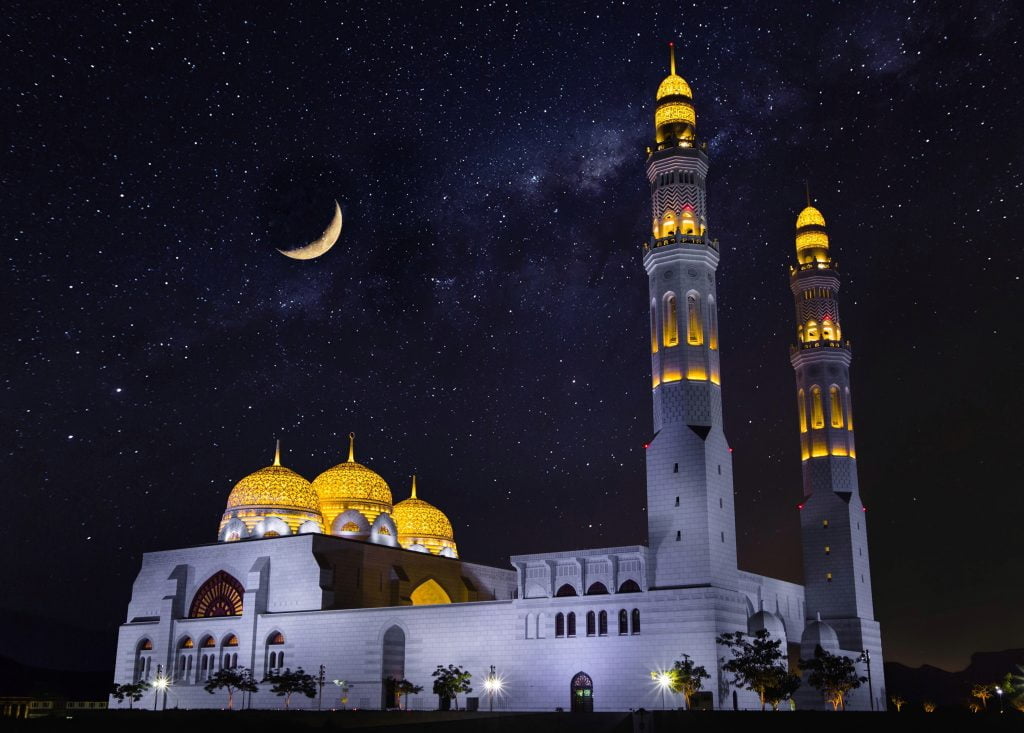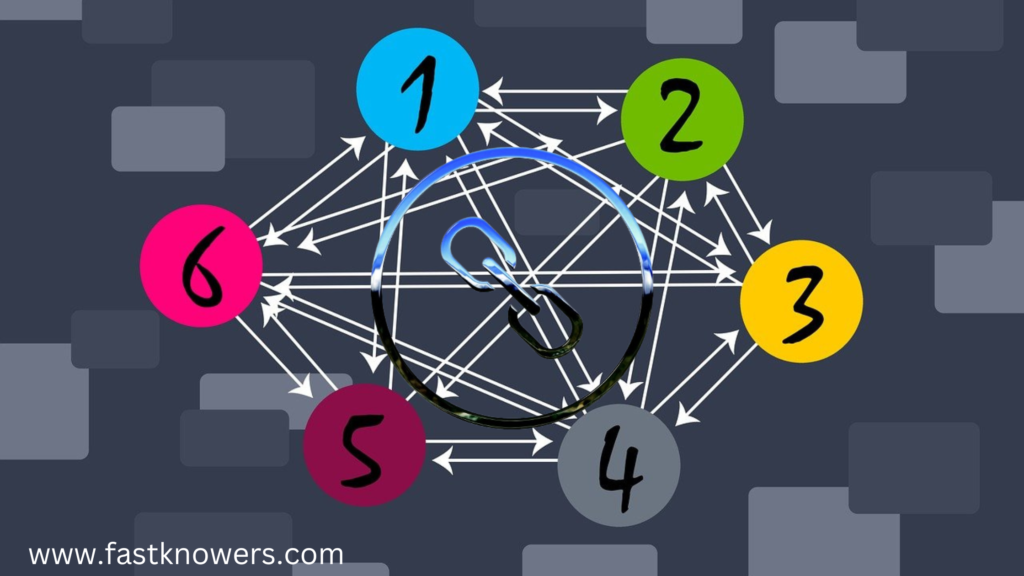
Are you aspiring to study Islamic studies in Nigeria? If you are to gain admission via JAMB, then here are the Islamic studies past questions and answers for you to pass very well in the upcoming JAMB examination.
Islamic Religious Studies (IRS) is one of the subject combinations for students who are aspiring to study social science courses like Political science, Psychology, Agricultural science, accounting, etc.
The purpose for sitting for Islamic studies is to teach students the etymology of Islam, how God sent all His Messengers/Prophets right from Prophet Adama download to Prophet Muhammad, how Moslems should worship and praise their Lord, etc.
Islamic studies started in educational system in Nigeria from fifteenth century in the northern Region.
If you want to pass very high like 300+ in JAMB, then here we have got you covered. Please contact us via our contact us page about Islamic studies past questions.
We have Islamic studies JAMB questions for different years prepared in an e-book format which we can share with you free of charge.
Every year, I witness many candidates that don’t perform well in JAMB Islamic Studies examination, hence, I deeply made a research to bring out to the public the top most yearly JAMB Islamic studies asked questions and their answers. If you are a JAMB candidate or have somebody that is going to sit for JAMB, then this e-book is recommended for you or them. Please share this article to them.
Read this also: how to raise up an obedient child in Islam (one by one explanation).
Here are the top 70 frequently asked questions in JAMB on Islamic Religious Studies (IRS) and their answers.
Top 70 Islamic Studies JAMB past questions and answers for 2023
- As-sawm is the abstinence from eating, drinking and sexual urge
- A. from dawn to dusk with the intention of worship
- B. with or without the intention of worship
- C. from morning to evening in times of distress
- D. from dawn to dusk without intention of worship
- The Muwatta of Im M lik can be described as a book of
- A. Hadithand Fiqh
- B. S and Us l al-Fiqh
- C. Hadith and Surah.
- D. Fiqh and T r kh?
- The goal of luqm n’s counsel to his son: as contained in 31:13 is to
- A. discourage pride
- B. encourage goodness to parents
- C. warn against finding partners for Allah
- D. uphold the principle of justice
- The battle of Khandaq was known as such because the
- A. Quraysh fell into a trench.
- B. hypocrites protected Khandaq from enemies
- C. Muslims dug a trench as a war strategy
- D. encounter took place near Khandaq
- The pre-Islamic practice of shig r which was abolished by Islam meant
- gambling
- exchange of sisters in wedlock
- exchange of female slaves
- trade by barter
- —- is a term use by scholars of
- jurisprudence
- had th
- us
- history
- The shortest surah in the Qu’ran is
- Suratun nas
- Suratul Kawthar
- Ikhlas
- Suratul Falaq
- According to Hadith 36 in an-Nawawi’s collection, Allah is ready to aid any servant so long as the servant is ready to aid his
- neighbors
- parents.
- friends
- brothers
- The Quyaysh boycotted Ban H shim because they
- refused to accept Islam
- had all accepted Islam
- protected the Prophet (S.A.W) and refused to surrender him.
- planned to migrate to Yathrib with the Prophet (S.A.W)
- The Prophet (S.A.W) died in the year
- 519 C.E
- 610 C.E
- 632 C.E
- 517 C.E
- At the end of his prayer, how many sittings for At-Tashahud are expected of someone who misses two rah’kahs in a congregational salat Al-Maghrib?
- 1
- 3
- 4
- 2
- In pre-Islamic period, the social practice of tribalism was known as
- al-muruah
- al-ghazwah
- al-asabiyyah
- ad-diy fah.
- The first young person to accept Islam was?
- Muawiyah
- Umar Bn Khattab
- Ali Bn Abi Talib
- Uthman
- Passing the night in Muzdalifah is one of the rites of Hajj. Muzdalifah is between___
- Mina and Kufa
- ‘Arafa and Mina
- Makkah and Madinah
- Aqaba and ‘Arafa
- In Islamic law on divorce, the custody of a child aged two years or less is normally conceded to the
- father
- mother
- grandmother
- aunt
- A pilgrim circumnutates around the Ha’abah _____
- Six times
- Seven times
- Three times
- Eight times
- Qur 2:193 enjoins believers to fight unbelievers in the course of Allah if it takes that to
- defend themselves against transgression
- get rid of the unbelievers
- strengthen the Muslim treasury.
- be recognized by the unbelievers
- The verse (Q.99:4) translates as ‘On that day will
- all people declare their deeds
- she declare her tidings
- the dead be raised up
- men proclaim religion
- A worship who remembers that he missed an obligation step of ablution after he had finished prying will have to repeat
- the ablution and the prayer
- nothing after all
- only the obligatory step
- only the ablution
- In Surat al-falaq, the Qur n refers to an element of witchcraft and the
- mischief of the envious one.
- evils of back-biting
- evils of jinns and men
- mischief of created beings
- In which Surah is making show in worship condemned?
- A | Suratul Fil
- B | Kafirun
- C | Lahab
- D | Ma’un
- The revelation of the Qu’ran took a period of ____years
- A | 43
- B | 32
- C | 21
- D | 23
- Tawaful Wadai means___
- A | visiting the prophet’s grave
- B | farewell circumambulation
- C | Tawaf al-Ifadan
- D | visitation to the orphans in Makkah
- Hadith number sixteen of An-Nawwal’s collections enjoins Muslims not to ____
- A | Get angry
- B | Drink alcohol
- C | Commit adultery
- D | Back
- Tabiyah is to be recited while moving to___
- A Mina
- B Muzsalifa
- C Arafa
- D Kasaba
- Ar-Rahman, Ar-Rahim means the
- A Beneficient, Merciful
- B Living, Everlasting
- C Omnipotent
- D the Wise, All-knowing
- Who is known as Khatan An-Nabiyyin?
- A Ibrahim
- B Isa
- C Muhammad
- D Musa
- The number of Muslims in the battle of Badr was 313 while that of Makkan force was__
- A 1,000
- B 2,000
- C 100,000
- D 300
- The number one pillar of Islam is ______
- A Iman
- B Ihsan
- C Iman
- D Sa’afih
- The Holy Book given to Prophet Muhammed (SAW) was _____
- A Injil
- B Zaburah
- C Tawrah
- D Al-Quran
- Magic is originated from ____
- A Nas
- B Shaytan
- C Allah
- D Angel
- A pilgrim circumnutates around the Ha’abah _____
- A Three times
- B Six times
- C Seven times
- D Eight times
- The Prophet (SAW) died in which year?
- A 632
- C.E
- B 610C.E.
- C 519C.E
- D 517C.E.
- Khulafahar Rashidun means ___
- A a muslim community
- B a muslim Ummah
- C the faithful
- D the rightly guided Khalifat
- Khadija’s greatest contribution to the life of Mohammed in Makkah was that she
- A made him her salesman
- B made him very rich
- C gave him moral and financial support
- D wanted to make him king
- Taharah in Shari’ah is observed in all the following forms except?
- A Wudu
- B Tayammum
- C Istijanah
- D Ihraan
- As-salam is one of the attributes of Allah which means the _____
- A Bestowed
- B Honoured
- C Source of peace
- D Fashion
- Suratul Quraysh is known as Qu’ran chapter
- A 102
- B 106
- C 104
- D 108
- A muslim man that hits his left leg against a stone on his way to the market and turns back saying he is unlucky, according to Islamic law, he believes in___
- A magic
- B Allah
- C superstition
- D witchcraft
- Four revealed books mentioned in the Qu’ran are
- A Injil, Tawrah, Zaburah, Kitab
- B Injil, Furqan, Zaburah, Qu’ran
- C Tawrah, Furqan, Zaburah Injil
- D Injil, Tawrah, Zaburah, Qu’ran
- The place where the prophet started receiving the revelations of the Qu’ran is referred to as
- A Jabal Nur
- B Makkah
- C Cave Hirah
- D Cave thawr
- The Makkahs were opposed to Muhammad (SAW) because he preached primarily against _____
- A Music and dancing
- B Drinking and smoking
- C Murder and suicide
- D Idolatry and exploitation
- The following are considered good for water ablution except___
- A rain water
- B river water
- C well water
- D pond
- Belief in oneness of Allah is the cornerstone of Islamic _____
- A Brotherhood
- B Politics
- C Monotheism
- D Socialism
- The first woman to accept Islam was _____
- A Aisha
- B Aminah
- C Khadijah
- D Ruqayah
- The first man created by Allah was called _____ (ASW)
- A Adam
- B Dawud
- C Isa
- D Musa
- The Prophet was survived by only one child. This was___
- A Zainab
- B Fatimoh
- C Ruqayah
- D Ibrahim
- The seal of all the prophets was prophet___
- A Ayyub (a.s.w.)
- B Ibrahim
- C Yahya (a.s.w.)
- D Muhammed (s.a.w.)
- Which of the following is not a quality of the Prophet (SAW)
- A Forgiveness
- B Kindness
- C Patience
- D Forgetfulness
- A Moslem woman who notices blood after the expiration of the maximum days of her blood of birth should___
- A should abstain from prayers for five more days
- B not take her bath but continue to pray
- C take her bath and continue in prayers
- D take bath but not pray
- The migration of the Prophet Muhammad (SAW) from Mecca to Madinah was called?
- A Safar
- B Hijrah
- C Hirah
- D Gar
- Prophet Muhammad(SAW) lost his mother at the age of _____
- A 2
- B 4
- C 5
- D 6
- The religion of the Arabs before the advent of Islam was _____
- A Christianity
- B Judaism
- C Idol worshipping
- D Hinduism
- In which Surah of the Qu’ran does this verse occur “Fasalli il-rabbika wani har”
- A Fathiah
- B Lahb
- C Kawthar
- D Nas
- One of the following is not part of the names of the Qu’ran.
- A Al-Huda
- B Ar-Rahman
- C Al-Bayyinah
- D An-Nur
- The purification performed in the absence of water is?
- Janabah
- B Janazah
- C Tayammum
- D Taslim
- The pre-Islamic period is known as?
- A Sunnat
- B Jahillyyah
- C Mujahidun
- D Al-Bait
- Which of the angels is in charge of paradise? _____
- A Mikail
- B Israil
- C Ridwan
- D Israfil
- Al-Mutamatti means one___
- A who performed ‘Umarah and waited for Hajj and performed Hajj
- B who enjoyed life in Makka and Madina
- C who visited most important places in Makka and Madinah
- D none of the above.
- The early Muslims of Madinah were known as?
- A Ansar
- B Siffin
- C Uhud
- D Khandaq
- How many times does a Muslim pay zakat in a year?
- A Once
- B Twice
- C Thrice
- D Four times
- Chapter 112 of the Qu’ran talks about belief in
- A Unity of Allah
- B Life after death
- C Prophets
- D Messengers
- At the end of his prayer, how many sittings for At-Tashahud are expected of someone who misses two rah’kahs in a congregational salat Al-Maghrib?
- A 4
- B 3
- C 2
- D 1
- One of these is a lesson learnt from the Suratul Kafirun
- A Monotheism
- B disobedience to Allah
- C there should be no compulsion in religion
- D say, O unbelievers
- The number of prophets mentioned in the Qu’ran are ___
- A 55
- B 45
- C 35
- D 25
- Subh prayer contains _____ obligatory ra’kahs?
- A 2
- B 3
- C 4
- D 5
- The Khalifah who ordered the compilation of the Qu’ran in a book form was ___
- A Abu Bakr b. Abu Quhafah
- B Umar b. al Kattab
- C Uthman b. Affan
- D Ali b. Talid.
- The importance of the Hadith lies in the fact that it _____
- A Supplements the Qu’ran and serves as a second source of Islamic law.
- B Provides reliable information on the biography of the Prophet (SAW).
- C Was officially collected by Muslim Caliphs.
- D Was recorded and collected in some authentic.
- In what city and how many verses did surah البقرة reveal and contain, respectively.
- A | Mecca and 1000
- B | In the Cave of Hirah and 720
- C | Medina and 286
- D | Saudi Arabia and 250.
- The suffix “Siddique” was added to the name of Abubakar by Prophet Muhammad as a result of what? Because he was —–
- A | A non believer before
- B | The closest friend of the Prophet
- C | A truth speaker
- D | The first caliph and the first man that accepted Islam.
Above are the frequently asked questions and in JAMB examination on Islamic Religious Studies. If you know that it has helped you, please share it with your friends and remember to subscribe to our newsletter for more important updates from us about JAMB.
Have a nice day. Thank you.






